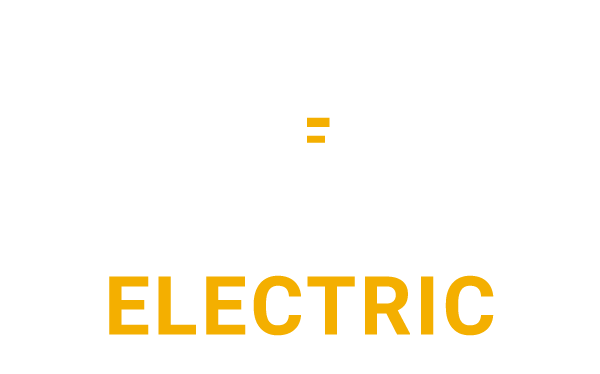Congratulations on taking a big step towards better hearing by purchasing new hearing aids! As you get used to wearing your new devices every day, we have compiled some important and useful tips to help you get acclimated to your new hearing aids.
Your ears take time to adjust to hearing aids
Patience is a virtue when you get new hearing aids. Hearing loss often happens gradually, over many years, so you may not notice a decline in your hearing. When you first get hearing aids, it may be a bit of a shock to the system, as hearing aids switch sound back on all at once.
As this can be quite a change, it usually takes time to get used to new hearing aids. Sounds you haven’t heard for a long time are suddenly available again. Even mundane sounds like your own footsteps and your own voice may sound different than you remember. At first, they may seem too loud. This is because we hear with our brains, so our brains must re-learn how to process and make sense of all the new sound information that is coming in.
This takes a little time, so prepare yourself and remember – hearing will feel normal again soon.
Remember that no one can hear everything
Sometimes, first-time hearing aid wearers think that their new devices are not doing enough. This can be because over the years they have forgotten how it actually is to hear normally. Then, when they get hearing aids, they can be disappointed that they can’t hear everything that is happening at the other end of a crowded dinner table, or juggle multiple conversations happening simultaneously. Keep in mind that the brain helps you filter what’s most important. Remember that most people with normal hearing can’t “hear everything” (or at least process it), either.
So while you get used to your new hearing capabilities, try not to turn the volume up too much. Also, in the initial period, try to refrain from adjusting programs until your brain has had a chance to test out the soundscape and get used to filtering the information. Just try to get a very general feel for your hearing aids at first.
- Use your hearing aids as much as possible – As you get used to your new hearing aids, it can be tiring at first. As your brain adjusts, it demands more mental energy. Some people get tired after a few hours each day, and feel like taking them off. This is okay for the first few days or initial period of adjustment. However, it’s important to push yourself to wear them a bit longer each day. It’s helpful to try to wear them for as long as possible each day. We also advise that you wear them in quiet environments, even though you might feel they’re less useful. But even using them alone at home, your brain will get used to listening for quiet background noises that it isn’t used to hearing.
- Protect your hearing aids when you are not wearing them – Your new devices are tough, but they are not indestructible. So when you do take them off to shower or go to bed, store them out of the reach of children and pets. Not only can your hearing aids become damaged, but hearing aid batteries can be dangerous if swallowed. Contact your doctor or vet if a battery or hearing aid is accidentally swallowed.
- Your hearing aids don’t like water – Damp places like bathrooms, and dust and dirt, are not ideal for hearing devices. We suggest you use a hard case to keep them safe when you are away from home, such as at the beach or swimming pool. In especially humid climates, you may want to invest in a hearing aid dehumidifier. Ask your hearing care provider for more information on what is the right option for your model.
- With hearing aids, you can reset your hearing to normal – It’s time to readjust your hearing to the world. If you had the volume turned up high on your TV, ask someone with normal hearing to set your TV volume to a normal level, and then keep it there. That will help you gauge what the volume level sounds like to others while you get used to your new hearing aids. In the interim, you might try watching the TV with subtitles on, to help retrain your brain to connect sound and language. You can also get used to your devices by closing your eyes and trying to hear where sounds are coming from.
- Make a follow-up appointment for adjustments – Although your patient care coordinator (PCC) may have already booked this appointment for you before leaving our office, if you haven’t done so, make sure you stop back for a follow-up appointment after a few weeks. That way, we can work with you to confirm whether your hearing aids need adjusting or if you have any questions on how to use them. If you have issues in the interim, please call to make an appointment sooner. We can usually make adjustments to the sound so your hearing aids are minutely tailored to you. A few tweaks may make all the difference.
- Features may be tricky – Ask for help! Having issues pairing your hearing aids to your phone or other electronics? Perhaps you need help using an app that connects your hearing aids to other devices? Your hearing care professional can help you so that you can take advantage of your hearing aids’ technical features.
- Make notes on any issues with your hearing – We get it. Sometimes you have a problem on Monday, but it isn’t bothering you on Wednesday, but perhaps we can help you address it anyway. If you aren’t scheduled to see your hearing care provider for a few weeks, we encourage you to jot down notes on any issues or questions. It can also be a great help to bring a relative or friend along, since they will bring their own perspective, and may have noticed things that you have not. We can also educate them on how to adjust your hearing aids, change the batteries or help you keep them clean.
- Daily maintenance makes a big difference – Remember, use a clean cloth to wipe excess wax or other debris off your hearing aids each night. If you have rechargeable hearing aids, make sure you perform this task before you recharge them.
Remember that you aren’t alone! Your hearing care professionals are here for you.
Getting you off to a successful start is crucial to getting the most out of your investment. Your hearing care professionals are happy to help you throughout the life of your hearing aids. We understand this may mean that you need to contact us often in the beginning, but we are always happy to help.





